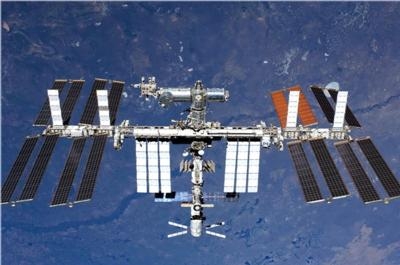Builds On The 2015 Commercial Space Launch Competitiveness Act
U.S. Senators Ted Cruz (R-TX), Bill Nelson (D-FL), and Ed Markey (D-MA), members of the U.S. Senate Committee on Commerce, Science, and Transportation, recently introduced the Space Frontier Act (S. 3277). This commercial space bill builds upon the 2015 Commercial Space Launch Competitiveness Act by streamlining and reforming the regulatory framework for commercial space launch and Earth observation operations, which is crucial to maintaining American leadership in space. The bill also extends the operation and utilization of the International Space Station (ISS) through 2030 to ensure that the U.S. is getting the maximum return on American taxpayer investment to avoid creating a leadership vacuum in low Earth orbit.

“The U.S. commercial space industry is a growing and vibrant sector of the American economy that has yet to reach its full potential due to outdated regulations that haven’t kept pace with advances in technology,” Sen. Cruz, chairman of the Subcommittee on Space, Science and Competitiveness, said. “The Space Frontier Act supports the continued development of a robust commercial space sector, and extends our leadership in space by maximizing our utilization and operation of the International Space Station. I am grateful for the efforts of Senators Nelson and Markey on this issue, as well as the broad, bipartisan support we have for the commercial space industry and America’s leadership in space.”
“This bill will help drive even more launches and space activity – bolstering our nation’s space economy and jobs in Florida,” said Nelson.
“This bill is a great step forward in providing certainty and a firmer launchpad for our commercial space industry,” said Senator Edward J. Markey, ranking member of the Senate Commerce Subcommittee on Space, Science, and Competitiveness. “This industry is booming, and our legislation will help it achieve new heights and protect small businesses and the scientific research that benefits all Americans through innovation and discovery. Healthy and fair competition among commercial space businesses will help our space program flourish as we enter the next great Space Age. I thank Senator Cruz for his partnership on an important effort to invest in this next, great horizon.”
The bill supports full and complete utilization of the International Space Station through at least 2030, and expresses support for maintaining a national lab to benefit the scientific community and promote commerce in space. It also modernizes launch and re-entry regulations.
Other highlights of the bill include:
- The Office of Commercial Space Transportation was previously located inside the Office of the Secretary at the Department of Transportation before being placed within the Federal Aviation Administration. The Space Frontier Act establishes an Assistant Secretary for Commercial Space Transportation within DOT, elevating the profile of commercial space issues within the Department.
- Requires DOT to issue a rulemaking to overhaul existing regulations within 1 year, and directs that the revised regulatory framework be focused around clear, high-level performance requirements applicable to both reusable and expendable systems.
- Encourages DOT to use its existing waiver and safety approval authorities to streamline the existing regulatory process while a more comprehensive regulatory overhaul is in work.
- Overhauls Earth Observation Regulations
- Since they were first created in the early 1990s, the regulations for Earth observation systems have failed to keep pace with a maturing industry. Applications frequently get stuck in an ineffective interagency consultation process which has led the Department of Commerce (DOC) to fail to meet its statutory requirement to act within 120 days on Earth observation satellite license applications. The Space Frontier Act repeals the existing legal framework for Earth observation regulations and creates a new framework at DOC that focuses on managing risk to national security and preventing harmful interference to other space activities.
It also provides a streamlined 90-day process for other agencies to review applications; non-responsiveness is treated as assent to the application, and non-concurrences must be signed by the head of the non-concurring agency or department.

The Chairman and Ranking Member of the House Committee on Transportation and Infrastructure commended the introduction of the bill.
“I commend the leaders of the Senate Commerce Committee for seeking improvements to the regulation of commercial space transportation. Their action represents a critical step forward for this new and growing mode of transportation,” said Committee on Transportation and Infrastructure Chairman Bill Shuster (R-PA). “It’s important to ensure the Department of Transportation remains the federal government’s one-stop-shop for commercial space transportation and that the American aerospace industry continues leading the world in technology and innovation. I look forward to working with them to achieve that goal.”
“The Department of Transportation provides the safest and most efficient aerospace system in the world—that’s why Congress designated DOT as the lead Federal agency in charge of regulating commercial space transportation,” said Committee on Transportation and Infrastructure Ranking Member Peter DeFazio (D-OR). “While there are changes I would like to see, this bill smartly recognizes the essential and growing role of the Department in advancing a safe and successful commercial space industry. I look forward to working with Chairman Shuster on these issues to ensure the United States remains the global leader in this industry.”
(Source: News releases)
 ANN's Daily Aero-Term (04.30.24): Runway Centerline Lighting
ANN's Daily Aero-Term (04.30.24): Runway Centerline Lighting ANN's Daily Aero-Linx (04.30.24)
ANN's Daily Aero-Linx (04.30.24) Airborne 04.24.24: INTEGRAL E, Elixir USA, M700 RVSM
Airborne 04.24.24: INTEGRAL E, Elixir USA, M700 RVSM Airborne 04.29.24: EAA B-25 Rides, Textron 2024, G700 Deliveries
Airborne 04.29.24: EAA B-25 Rides, Textron 2024, G700 Deliveries Airborne-NextGen 04.23.24: UAVOS UVH 170, magni650 Engine, World eVTOL Directory
Airborne-NextGen 04.23.24: UAVOS UVH 170, magni650 Engine, World eVTOL Directory




